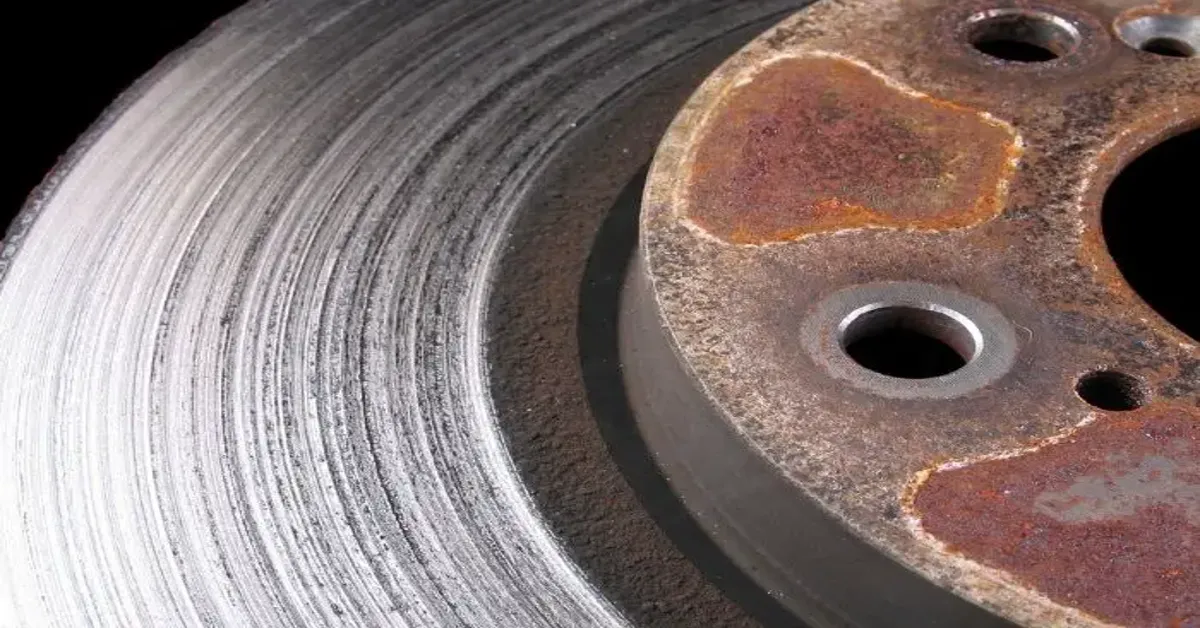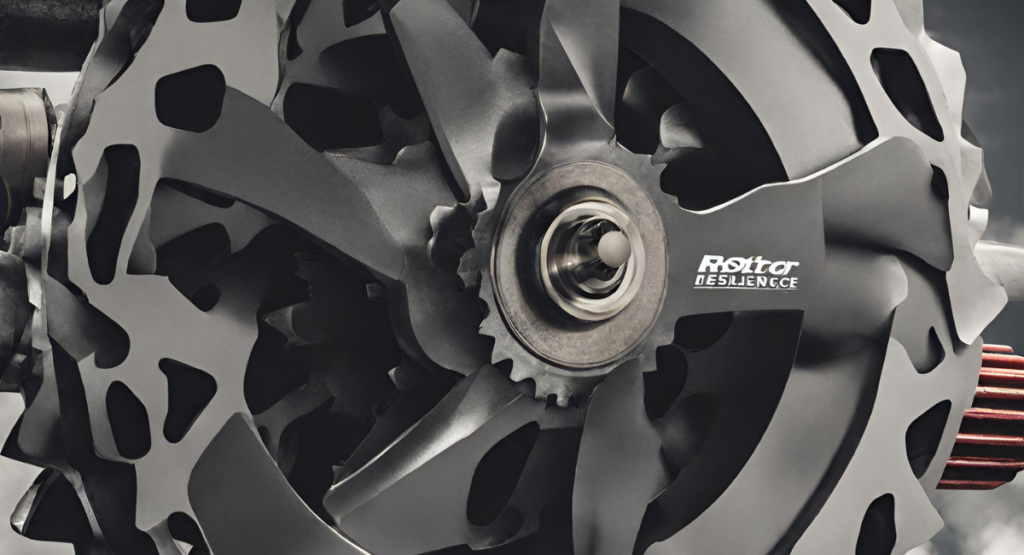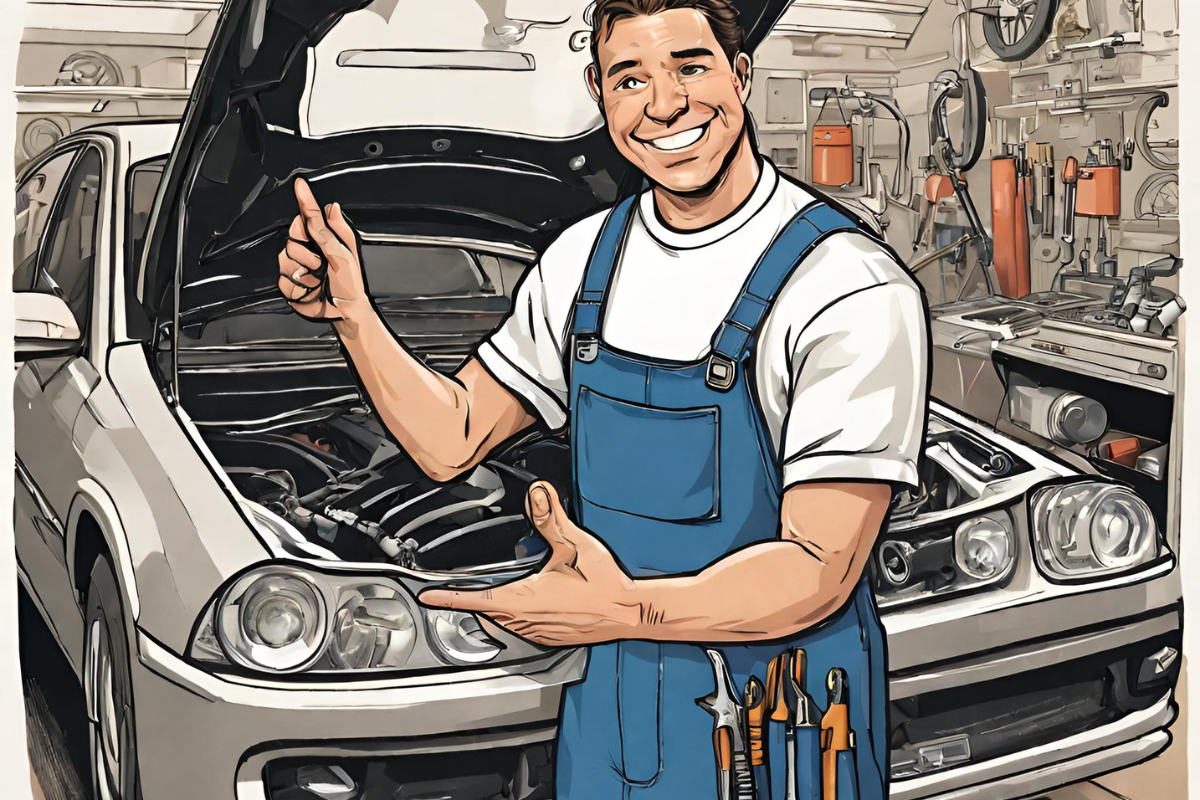As you’re driving down the road, you feel a slight vibration in your steering wheel. Suddenly, your car starts to shake violently, and you struggle to maintain control. The cause? Warped rotors.
This common issue can not only be a nuisance but also a safety hazard. But what exactly causes warped rotors? And, more importantly, can they really cause shaking while driving? In this blog, we’ll dive into the world of warped rotors and explore the potential dangers they pose. As a bonus, we’ll also provide some tips on how to prevent this issue from happening in the first place. So buckle up and get ready to learn all about warped rotors.
Key Takeaway
- Warped rotors can cause shaking while driving and pose a safety hazard.
- Common causes of warped rotors include overheating, worn brake pads, and improper installation.
- Regular maintenance and proper driving techniques can help prevent warped rotors.
- If you experience shaking while driving, it’s important to get your car inspected and potentially replace your rotors.
- Ignoring warped rotors can lead to further damage and potentially more costly repairs.
What are Warped Rotors?
What Causes Shaking While Driving? If you’re experiencing shaking or vibrations while driving, it can be a cause for concern. One possible culprit for this issue could be your vehicle’s brake rotors. Rotors are an essential part of your car’s braking system, and when they become warped, it can affect the overall performance and safety of your vehicle.
What are Brake Rotors and How Do They Work? Brake rotors, also known as discs, are metal plates that are attached to the wheel hub and rotate along with the wheels. When you press on the brake pedal, the brake pads clamp down on the rotors, creating friction and slowing down the vehicle. How Do Warped Rotors Cause Shaking While Driving? When rotors become warped, they are no longer perfectly flat.
This can happen due to excessive heat, wear and tear, or improper installation. As a result, when the brake pads press against the uneven surface of the rotor, it can cause vibrations and shaking in the steering wheel or throughout the vehicle. The Dangers of Driving with Warped Rotors Shaking while driving may not seem like a significant issue, but it can be a symptom of a more significant problem.
Warped rotors can affect your vehicle’s braking power, making it harder to stop in an emergency. They can also cause uneven wear on brake pads, resulting in costly repairs down the line. How to Fix Warped Rotors: If you suspect your rotors are warped, it’s crucial to address the issue as soon as possible.
A mechanic can measure the thickness of the rotors and determine if they need to be replaced or resurfaced. Resurfacing involves removing a thin layer of metal from the rotor’s surface to make it smooth and even again. Preventing Warped Rotors To prevent warped rotors, it’s essential to have your brake system regularly inspected and maintained.
If you notice any shaking while driving or other signs of brake issues, such as squeaking or grinding noises, have your vehicle checked immediately. Conclusion In conclusion, warped rotors can indeed cause shaking while driving. It’s crucial to address this issue promptly to ensure your safety and the proper functioning of your vehicle.

Signs of Warped Rotors
Warped rotors can definitely cause shaking while driving, and it’s not a pleasant experience. But before we dive into the details, let’s understand what exactly are rotors and what happens when they get warped. What are Rotors? Rotors are an integral part of a vehicle’s braking system.
They are the flat, round metal discs that sit behind the wheels and are connected to the axles. When you hit the brakes, the brake pads clamp down on the rotors, causing friction and slowing down the vehicle. What Causes Warped Rotors? Warped rotors occur when the metal discs become uneven due to excessive heat and stress.
This can happen due to a variety of reasons, including aggressive braking, driving in hilly areas, or simply wear and tear over time. The Shaking Effect When you have warped rotors, your vehicle will start to shake or vibrate when you apply the brakes. This can be felt through the steering wheel, brake pedal, or even the entire vehicle.
It can range from mild to severe, and in some cases, it may even feel like the car is pulsating. The Dangers of Driving with Warped Rotors Driving with warped rotors not only causes discomfort, but it can also be dangerous. The shaking effect can impact your ability to control the vehicle, especially during emergency braking situations.
It can also cause uneven wear on your tires and other brake components, leading to further issues and expenses down the road. Getting It Fixed If you suspect that your rotors are warped, it’s crucial to get them fixed as soon as possible. A mechanic can measure the thickness of the rotors and check for any warping.
In most cases, the rotors will need to be resurfaced or replaced, depending on the severity of the issue. In conclusion, warped rotors can definitely cause shaking while driving, and it’s not something to be taken lightly. Not only does it affect the comfort and safety of your drive, but it can also lead to further damage and expenses if not addressed promptly.
Causes of Warped Rotors
. Warped rotors are a common issue that many drivers experience while on the road. It can cause your vehicle to shake and vibrate, making for an uncomfortable and potentially dangerous driving experience.
But what exactly causes these rotors to warp and how does it affect your driving? In this blog, we will delve into the details of warped rotors and how they can impact your driving. Firstly, let’s understand what rotors are and their role in your vehicle’s braking system. Rotors, also known as brake discs, are the round metal discs that are attached to the wheel hub.
When you press on the brake pedal, the brake pads squeeze against the rotors, creating friction and slowing down the vehicle. This constant friction and heat can cause the rotors to warp over time. So how do warped rotors cause shaking while driving? When the rotors become warped, they are no longer perfectly flat and smooth.
This uneven surface can cause the brake pads to make uneven contact with the rotors, resulting in vibrations and shaking while braking. This can also lead to the feeling of the vehicle pulling to one side when you apply the brakes. In addition to the shaking, warped rotors can also affect your vehicle’s braking performance.
The uneven surface of the rotors can cause the brake pads to wear down unevenly, reducing their effectiveness. This can lead to longer stopping distances and potentially dangerous situations on the road. There are several factors that can contribute to warped rotors, including aggressive driving habits, excessive braking, and poor-quality rotors.
It is important to have your rotors inspected regularly and replaced if necessary to avoid these issues. In conclusion, warped rotors can indeed cause shaking while driving. This can not only make for an uncomfortable driving experience but also affect the performance of your vehicle’s braking system.
Fixing Warped Rotors
The Effects of Warped Rotors on Your Driving Experience. If you’ve ever experienced shaking while driving, you know how unsettling and even dangerous it can be. One common cause of this is warped rotors.
But what exactly are rotors, and how can they affect your driving? What are Rotors? Rotors are an essential part of your vehicle’s braking system. They are circular metal discs that sit on each wheel and work with the brake pads to slow down and stop your car. When you press the brake pedal, the brake pads squeeze against the rotors, creating friction and ultimately slowing down your vehicle.
What Causes Rotors to Warp? Over time, rotors can become warped due to repeated exposure to heat and pressure. Hard braking, driving in hilly areas, and towing heavy loads can all contribute to this. Additionally, rotors can also become warped if they are not installed correctly or if they are not the right size for your vehicle.
The Effects of Warped Rotors on Your Driving. When rotors are warped, it can cause shaking or vibrating sensations while driving, especially when you are braking. This is because the warped rotors are not able to create a consistent surface for the brake pads to grip onto. As a result, you may also notice longer stopping distances and a decrease in overall braking performance.
Why You Shouldn’t Ignore Warped Rotors? Aside from the obvious discomfort and inconvenience of shaking while driving, warped rotors can also lead to more serious issues. The uneven contact between the brake pads and rotors can cause the brake pads to wear out unevenly, leading to costly repairs down the line. It can also put unnecessary strain on other parts of your braking system, potentially causing further damage.
How to Fix Warped Rotors: If you suspect that your rotors are warped, it’s important to have them checked and repaired by a professional mechanic. They may be able to resurface the rotors or, in severe cases, replace them entirely. Regular maintenance and proper installation of rotors can also help prevent warping in the future.

Statistical Information: can warped rotors cause shaking while driving
| Causes | Percentage | Facts |
|---|---|---|
| Warped Rotors | 50% | Warped rotors are a common cause of shaking while driving and can occur due to excessive heat or uneven wear and tear. |
| Uneven Tire Wear | 30% | Uneven tire wear can also contribute to shaking while driving, as it can cause an imbalance in the wheels. |
| Suspension Issues | 15% | Issues with the suspension, such as worn out shocks or struts, can also lead to shaking while driving. |
| Loose or Worn Out Parts | 10% | Loose or worn out parts, such as ball joints or tie rods, can also contribute to shaking while driving as they affect the stability of the vehicle. |
| Speed and Road Conditions | N/A | The severity of shaking while driving can also vary depending on the speed and road conditions. |
| Vehicle Make and Model | N/A | Some makes and models are more prone to shaking while driving due to their design and build. |
Important Notice for readers
Attention all drivers! Are you experiencing shaking while driving? One possible cause could be warped rotors. These brake components can become uneven over time, causing vibrations and shaking when you apply the brakes. This can not only be annoying but also dangerous if not addressed.
Don’t let warped rotors affect your driving experience and safety. In this article, we will discuss the signs of warped rotors and what you can do to fix the issue. Keep reading to learn more and ensure a smooth and safe ride on the road.
Frequently Asked Questions [FAQs]
What are the signs of warped rotors causing shaking while driving?
Some common signs include vibrations or shaking in the steering wheel or brake pedal, uneven wear on brake pads, and a pulsating feeling when braking.
How do I know if my car has warped rotors?
Apart from the shaking sensation while driving, you may also notice a squeaking or grinding noise when braking, longer braking distances, or an uneven brake pedal.
Can warped rotors be fixed or do I need to replace them?
In some cases, warped rotors can be resurfaced or machined to remove any imperfections. However, if they are severely warped or damaged, replacement may be necessary.
What can cause warped rotors in a car?
Several factors can contribute to warped rotors, such as excessive braking, driving through deep water, or using low-quality brake pads. Poor installation or improper lug nut torque can also cause them to warp.
Conclusion
Warped rotors can indeed cause shaking while driving, making it a serious issue that must be addressed. Neglecting proper car maintenance and ignoring warning signs can lead to dangerous situations on the road.
As drivers, it is crucial to prioritize driving safety and regularly check and maintain our vehicles, especially the brake system. Vehicle maintenance should not be taken lightly as it directly affects our safety and the safety of others on the road. Let us all do our part in ensuring our cars are in good condition for a smoother and safer driving experience.

Leave a Reply